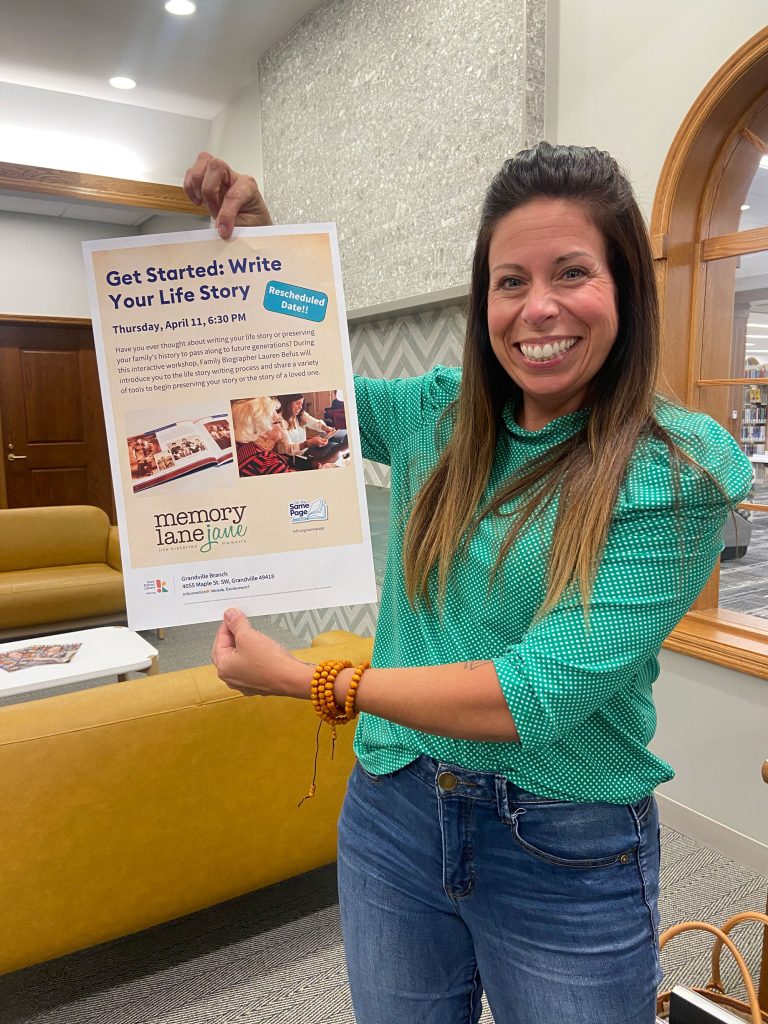When you first realize that you want to write a life story, whether your own or the story of someone you love, initial feelings often include overwhelmedness. (Fun fact: The use of the word “overwhelmedness” was first documented in the 1860s writing of theologian Edward Pusey, a clergyman for the Church of England. What can we say—we’re storytellers!)
Many people ask: Where do I even start?
Memory Lane Jane Founder Lauren Befus recently taught a class on this very subject, Get Started: Write Your Life Story, at the Kent District Library in Grand Rapids, Michigan. Attendees were so engaged that the one-hour class just wasn’t enough. After an additional forty-five minutes, the group was forced to call it quits only because the library closed.

At Memory Lane Jane, we’re here to help make the preservation of your life story more accessible and less stressful. After all, we could all use some motivation and encouragement to finally write down those stories and begin documenting our family histories. The best time to begin recording your memories is NOW. If you’re young, that means your personal story will be incredibly well documented. And if you’ve lived a rich, full, long life, that means you have even more to share.
After years of working with Memory Lane Jane clients and facilitating life story writing workshops, we have compiled a list of our top five tips to get you started on your life story writing journey.
1. Start with “WHY” and “WHO.”
What is motivating you to write your life story? Have your children been nudging you? Are you passionate about your family history living on in perpetuity? Maybe you want to share your hopes, dreams, and values with your loved ones? Or, is this something you’ve just always dreamed of doing? What is your WHY? WHO is this book for? Who do you want to read it? Is it for you? Your children? Grandchildren? Employees? Friends? Community? The world? Once you’ve identified your why and your who, you can use these insights as a compass to navigate the entire writing process. “Why am I writing this?” and “Who is it for?”
2. Invite others into the conversation.
Engage family members and loved ones in the process of writing your story. What do your loved ones want to know about your life? What questions do they have? Use their answers to help guide your writing prompts.
3. Illustrate vs. explain.
Stories are powerful. More than facts, dates, or bullet points, neuroscience tells us that stories activate our entire brain—meaning, the more specific and detailed the story, the more engaged our brain will be and the greater the impact on our readers. If you’re writing about your first love, include more than just the facts. “Freckles. All I remember are those freckles. When Sarah bumped into me on the first day of our freshman algebra class, I was smitten. I’d never seen anyone so beautiful in all my life.”
4. Start small.
If you sit down at your desk and decide to write your whole life story from start to finish right then and there, chances are that you’ll descend into “overwhelmedness.” You’ve lived a storied life, and most of us can’t fit all of that into one single thought session. Instead, write in small sketches of five to ten minutes every day (at the same time if possible) on specific topics, such as a favorite holiday, first job, or a memorable world event. Use memory prompt questions or your loved ones’ questions to guide you.
5. Collaborate.
Even the most renowned authors acknowledge the challenges inherent in the writing process. Writing solo is especially difficult. Many community centers, libraries, and senior centers offer or host some type of life story or memoir writing group. Many communities even have their own small genealogical society. It is often encouraging to join these groups with people who are pursuing the same goals and navigating similar challenges. If a group doesn’t exist near you, maybe it’s time to start one yourself.
And here’s one more bonus tip for you: If you’re having trouble organizing your thoughts or simply want more guidance, hire a professional. At Memory Lane Jane, we partner with individuals, couples, families, and business leaders for structured, intentional interviews that get to the heart of your stories without that sense of “overwhelmedness.” Our creative team of professional interviewers, writers, editors, and designers will work with you to create a commemorative heirloom book that will be treasured for generations to come. Click here for your free consultation.
Let’s get writing!
